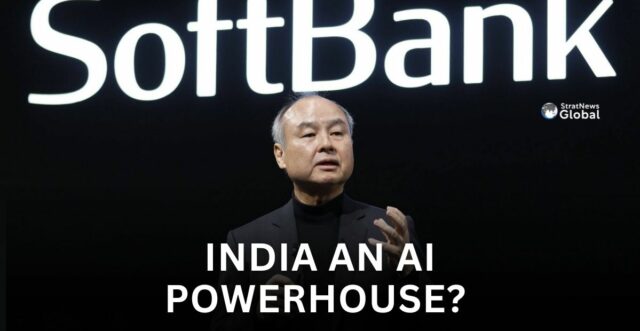Japanese billionaire and SoftBank Group founder Masayoshi Son has unveiled ambitious plans to position India as a global hub for semiconductor design and manufacturing, riding on the transformative wave of artificial intelligence (AI).
During his visit to India, Son called on Prime Minister Narendra Modi and key business leaders to discuss his vision of making India the “chip capital of the world.” Son believes that India, with its growing chip design capabilities, has the potential to evolve from a software services powerhouse into the next Silicon Valley.
A Million Chip Designers
Son’s plans include involving Arm Holdings, the British semiconductor design giant in which SoftBank holds a 90% stake. Arm debuted on the Nasdaq earlier this year in the largest IPO of 2023, raising $4.87 billion, with a current market capitalization of $140 billion. SoftBank holds a 90% stake in Arm Holdings
Arm aims to collaborate with Indian universities and institutions to train one million chip designers, ensuring a robust talent pipeline for the semiconductor industry.
AI Opportunities
Addressing Indian entrepreneurs in a two-hour meeting, Son emphasized the need to adopt non-linear thinking about AI and map a vision for the next decade.He highlighted the enormous potential of AI, predicting $9-12 trillion in global capital expenditure on AI infrastructure in the coming years.
Son’s India trip also included a meeting with Reliance Industries chairman Mukesh Ambani in Mumbai, where they discussed possible AI opportunities.
India’s Semiconductor Push
The timing of Son’s visit aligns with India’s growing focus on semiconductor manufacturing. The central government’s Indian Semiconductor Mission (ISM) aims to bolster the country’s chip-making, packaging, and design capabilities.
Under the ISM, a budget allocation of $10 billion is anticipated for its second phase. In the first phase, Tata Electronics’ $11 billion proposal to set up a semiconductor fabrication unit in Gujarat was approved.
Under the ISM programme, the government provides nearly 50% of capital subsidy to companies setting up semiconductor facilities. This is topped up another 15-25% by the state government where the plant is coming up.
SoftBank and India
SoftBank has invested $11 billion in Indian startups over the last decade, making it one of the largest backers of the country’s startup ecosystem. Its portfolio companies include FirstCry, Ola Electric, and Swiggy, among others.
The conglomerate reported an $8 billion profit in the July-September quarter, its highest in two years, driven by successful IPOs of Indian firms.
Son’s meeting with startup leaders such as Kalyan Krishnamurthy (Flipkart), Vijay Shekhar Sharma (Paytm), and Bhavish Aggarwal (Ola) Ritesh Agarwal (Oyo), Peyush Bansal (Lenskart) and Albinder Dhindsa (Blinkit) reinforced SoftBank’s commitment to India.
He also met Khadim Batti of Whatfix, Ashish Mohapatra and Ruchi Kalra of OfBusiness, Vikram Chopra of Cars24, and Saurabh Nigam of ElasticRun.
AI and Beyond
Son’s focus on AI extends beyond semiconductors. He’s bankrolling a $100 billion venture that will complement Arm Holdings, while competing with Nvidia in manufacturing semiconductors to be used for AI deployment, Bloomberg reported in February.
SoftBank’s Vision Fund has invested $500 million in OpenAI, with plans to scale this to $1.5 billion. In July, the group acquired UK-based AI chipmaker Graphcore, further strengthening its AI chip capabilities.
Son’s visit underscores India’s growing importance in the global AI and semiconductor ecosystem. As the country advances its semiconductor ambitions under ISM and nurtures its AI potential, it stands poised to play a pivotal role in shaping the future of technology.





